

CHRISTIAN LEADER



The “real” Christmas story Dear Colleagues Together we plant churches







Kindness Granted
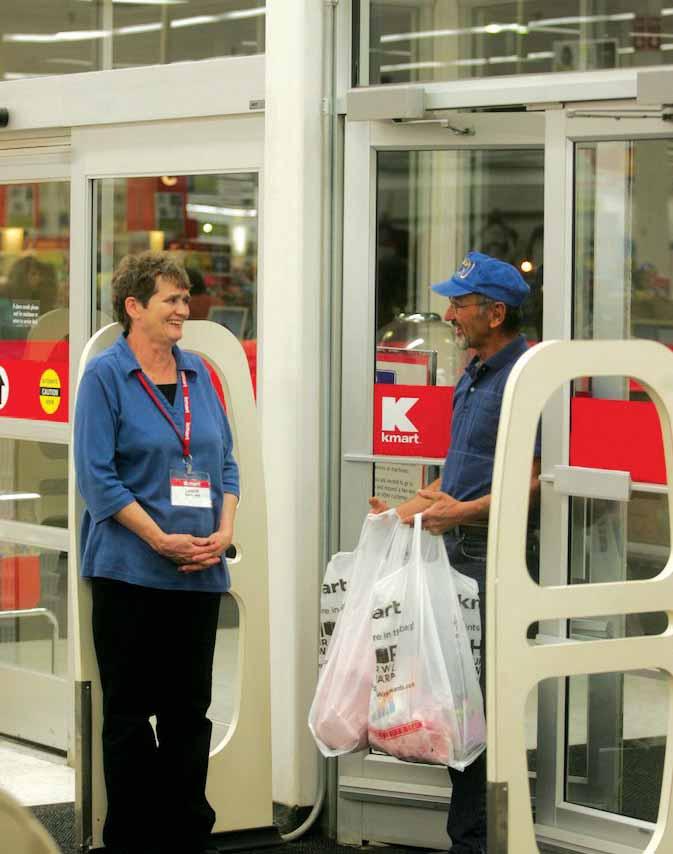



Ahelpful parenting suggestion I explored when our children were young was the notion of intentionally establishing a unique family identity. We never went so far as to draft a family mission statement or to create a coat of arms, but we did talk about “Faber House Rules” and occasionally informed our three children that, “Fabers don’t (whine, cry, mope, argue) in public.” We recognized that while our goals as parents were very similar to those of other parents—that our children would exhibit Christian virtues, for example—there were certain things that we were particularly interested in cultivating in our children—a willingness to ask questions, for instance.
Does it matter whether we U.S. Mennonite Brethren claim a unique identity?
Aren’t all Christians given the same charge to be fishers of men and to live as disciples of Jesus Christ?
“ “ Connie Faber Editor

The idea that a family is both unique from and similar to other families is helpful when thinking about who we are as U.S. Mennonite Brethren. Jim Aiken, in his article “Proud to be Mennonite” in this issue of the Christian Leader, urges us to treasure our spiritual heritage as Mennonite Brethren. His comments suggest some thought-provoking questions: Does it matter whether we U.S. Mennonite Brethren claim a unique identity? Aren’t all Christians given the same charge to be fishers of men and to live as disciples of Jesus Christ? So why not highlight what we have in common with other denominations instead of championing a distinctive? Doesn’t God’s Word call us to unity?
These are good questions to ponder as we approach January 6, the anniversary of the birth of the Mennonite Brethren Church—a church formed by 18 German-speaking families living in the Ukraine that today is a global spiritual family comprised of 20 national conferences in 17 countries. In the afterward to The Mennonite Brethren Church Around the World: Celebrating 150 Years, editor Abe J. Dueck says this: “Most Mennonites around the world today do not have ethnic roots in Russia and do not have the same memories to define a common sense of identity.... The common identity of Mennonite Brethren is shaped by their desire to live in faithfulness to the gospel and by their attempts to bring hope and faith to a world where violence, injustice and despair are a daily reality.”
Yes, we have much in common with thousands of Christians in the United States and millions of Christians around the world. But our particular understanding of the role the Bible plays in our lives as Christians and our commitment to the teachings of Jesus along with the values we hold concerning community, discipleship and nonviolence provide a unique and valuable perspective. The world needs this perspective and so does the Church. We need to celebrate our uniqueness and share it proudly.
Correction: Correction:
The article about the Latin American Mennonite Brethren district in the Oct/Nov issue incorrectly identified the photo of missionaries Harry and Sarah Neufeld; we mistakenly listed their last name as Friesen. The article also says that there are eight congregations in LAMB. There are currently nine: Jesus es mi Paz in Pharr was added to the conference February 4, 2012.













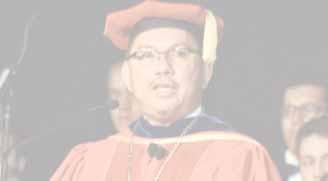


Aaron Hernandez

AAs a kid I remember numerous times being filled with the sense of joy, anticipation and celebration that surrounded the birth of Jesus. The many lights, decorations, gatherings and lots of food (tamales!) worked together and became the precursor to “the” gift. That one gift that would fill me up with satisfaction, delight and enjoyment. How wrong I was. Quickly I would find that the muchanticipated gift never lived up to the hype surrounding it. Soon Christmas was gone, and my heart was empty again. The truth is no earthly gift will ever live up to the value we place on it nor will it satisfy for an extended period of time. Only the gift of Immanuel, God with us, who brought us salvation and hope for the future and present, can live up to its value and satisfy us beyond our understanding.
As I have matured and grown older I have found myself at times feeling a bit restless and anxious. This rumble of dread can easily become something much bigger if I’m not connected in a fresh and vital way to the God that is with me. I know now that the hope that Christmas offers is for every day, in every life situation, wherever I find myself. I find myself repeatedly echoing the words of King David in Psalm 62: “Yes, my soul, find rest in God; my hope comes from him.”
As my soul enjoys rest in God through the work of Jesus on the cross and daily promptings by the Holy Spirit, I find myself more aware of his work in my life and what he is doing around me. Now, more than ever before, I just want Jesus: his presence that steadies my heart, his grace that sustains my life and his peace that calms my soul.
Christmas is still a very exciting time for me. And today my soul can rest because when the holiday is over and it’s any day of the year I can still run to the One—Immanuel, Jesus—who can give me rest and be my refuge.
Aaron Hernandez is pastor of Grace Point @ Grulla and its new daughter church, Grace Point @ McAllen. These two USMB congregations are in the neighboring communities of La Grulla and McAllen, Texas.

“Yes, my soul, find rest in God; my hope comes from him. Truly he is my rock and my salvation; he is my fortress, I will not be shaken. My salvation and my honor depend on God; he is my mighty rock, my refuge. Trust in him at all times, you people; pour out your hearts to him, for God is our refuge.”
Psalm 62:5-8
CHRISTIAN LEADER
December 2012 / January 2013 Volume 75 • Number 6
Connie Faber EDITOR
Myra Holmes ASSISTANT EDITOR
Shelley Plett GRAPHIC DESIGNER
Kaleidoscope Photography - Jeremy Waltner COVER PHOTO
The Christian Leader (ISSN 0009-5149) is a gathering place for the people, passions and mission of U.S Mennonite Brethren. The Christian Leader is published bimonthly by the U.S. Conference of Mennonite Brethren Churches. However, the opinions expressed here are not necessarily those of the church as a whole.
COPYRIGHT The articles printed in the Christian Leader are owned by the CL or by the author and may not be reprinted without permission. Unless noted, Scripture quotations are from the New International Version.
READER PARTICIPATION Letters to the editor should be 300 words or less and on one subject. Letters must be signed and include the writer’s city and state. Letters will be edited for clarity, appropriateness and length. Letters will be published, as space allows, unless marked, “Not for publication.” Readers interested in contributing essays for In My Humble Opinion and First Person should contact the editor. Freelance article submissions are welcome; a SASE must accompany articles.
SUBSCRIPTIONS $10 for six issues and $20 for 12 issues ($15, $30 in Canada; all other countries $25 for six issues); $1.50 per copy
CORRESPONDENCE: All correspondence, including subscription questions and address updates, should be addressed to Christian Leader Box 155, 107 N. Main, Hillsboro, KS 67063-0155 Phone: 620.947.5543
E-mail: christianleader@usmb.org
MEMBERSHIP The Christian Leader is a member of the Evangelical Press Association and Meetinghouse, an association of Mennonite and Brethren in Christ editors.
POSTMASTER Send address changes to Christian Leader, Box 155, Hillsboro, KS 67063. Periodicals postage paid at Hillsboro, Kansas.
The Christian Leader is published by

U.S. Conference of MB Churches

Ed Boschman USMB executive director ebed@usmb.org
Reflecting on gifts and peace
Giving and receiving
“For to us a child is born…and he will be called Wonderful Counselor, Mighty God, Everlasting Father, Prince of Peace. Of the greatness of his government and peace, there will be no end. He will reign on David’s throne and over his kingdom, establishing and upholding it with justice and righteousness from that time on and forever. The zeal of the Lord Almighty will accomplish this” (Isa. 9: 6-7).
This Advent season is strongly marked by the giving and receiving of gifts. Given that one of my identified love languages is the receiving of gifts, I freely admit I really like that part of the action. Given that one of my wife Carol’s love languages is the giving of gifts, she really loves that part of the action. This works well for the two of us.
More importantly though, it always seems good and right to me to help our little Boschclan focus on why we do this giving and receiving. That God is the first giver is never to be ignored. Nor should it ever go without saying, especially during the season we celebrate his gift to us of his presence here on this planet.
Lovers are always givers. First lovers tend to be lavish. The one who is love couldn’t help himself. He behaved as first lover and gave himself. At immeasurable cost no less. Surely it was about our need for him, but it was at least as much about his need to be himself.
But, what of the nature of the gift? Given our realities and our need for gracious and wise guidance and advice, what could be better than a wonderful counselor? Given our uncanny ability
to make idols, our human frailty and our penchant for self-indulgent weakness, a mighty God is exactly what we need.
Because we have eternity in our hearts and because we have a deep need for strong and fulfilling parental care, the gift comes to us as the everlasting Father. And because reconciliation to the one who gave us the gift of life in the first place is impossible by our own initiative, the gift is the Prince of Peace.
Further, because it is an ongoing challenge for us to live in peace with those around us, beginning with our own families and our neighbors, the Prince of Peace comes to offer his rule and invites us to partner with him.
Given all that, let’s get after it as imitators of the first giver and as gracious receivers of those gifts of love.
Prince of Peace
You are invited. Seriously. Our USMB Board of Faith and Life has announced an “all are welcome” study conference for our national family. “Kingdom Citizens in a World of Conflict” will happen Jan. 24-26, 2013 in Phoenix, Ariz. We are inviting anyone who is part of one of our USMB churches to come study, talk and pray with us about what it means for us to be authentic followers of Jesus in our nation.
Because we are first citizens of the kingdom of Christ, we want to pursue authenticity, integrity, clarity and unity about how we live as followers of the Prince of Peace in the real world. It would be great to see you there. Full information and registration is available at www.usmb.org.
Because we are first citizens of the kingdom of Christ, we want to pursue authenticity, integrity, clarity and unity about how we live as followers of the Prince of Peace in the real world.
Timing of letter was poor
Mostly because of the timing, I found it appalling that the Christian Leader (CL) would include Clint Bergen’s letter to the editor (“The power of nonviolence”) in the June/July edition. As I was preparing for Memorial Day, a day to honor those who gave their lives for our country, I received my copy of CL and began to read. To my dismay, Bergen implies that the ultimate sacrifice paid by the brave men and women from this country’s founding to the present, and presumably its future as well, is insignificant and frankly worthless. Bergen apparently feels the freedoms he enjoys are worthless as well since he mocks those, like myself, who are patriotic. Why can’t we thank God for the many blessings he has bestowed on us? One of those blessings is that we are the recipients of freedoms not enjoyed by most around the world.
Bergen places an extremely high importance on being a “nonviolent resister” but that is simply not responsible. Would he not step in to stop a violent attack against a child or physically prevent a sexual predator from abducting a child? Would he turn a blind eye to a woman being assaulted by her abusive husband? Would he not defend himself in a life and death situation? Jesus came to earth to pay the punishment we all deserve. He knew he would suffer and die. He was obedient and followed through with God’s plan. To link Jesus’ role in saving all of humanity to the claim that we are to nonviolently resist a violent encounter is a dangerous message to send.
Nate Hower Rapid City, SD
No opportunity for timely response
Thank you to Roger Fast for his clear, concise and heart-felt presentation (“Shrugging off needs of others,” On My Mind, Aug/Sept issue.) It moved me to rethink and respond. I do not appreciate, however, the way the Christian
Leader (CL) handled the timing of this article. I’ve been reading the CL since becoming an MB member 55 years ago and I’ve never seen an article published for or against a vice presidential or presidential candidate eight or nine weeks before an election.
Let me make it clear. I consider Roger a friend and respect his right to express his views, although I would welcome a chance to discuss with him whether during the last three and onehalf years this present administration has done any better at balancing “competing goals” or made “tough decisions under the influence of Jesus and his demand that we love God and neighbor.”
It appears that Roger submitted this article before Ryan was the vice presidential candidate and CL added the phrase “and now vice presidential candidate” to his submission. The title “Shrugging off the needs of others” might then seem to apply to those of us who vote for Romney-Ryan. Was that Roger’s intent? I think not. I regret that it’s too late to offer a response to this article in the Oct/Nov CL before this election.
Donald I. Nachtigall Fresno, Calif.
The U.S. Constitution over Ayn Rand
In replying to Roger Fast’s column (“Shrugging off the needs of others,” On My Mind, Aug/Sept issue), I am at a slight disadvantage, having not read the novel. But I am in good company because a few good men, such as Benjamin Franklin, did not read Ayn Rand either, for obvious reasons. But I believe Franklin would have a few things to say about Fast’s belief about the use of government for compassion.
This is the man who said, “You have a republic, if you can keep it.” One of Plato’s ideas was that the trouble with a republic was that people find out that at least one political party will go the “bread and circuses” route and when that happens they are all in a Sooner’s rush over the fiscal cliff. The current president will need to take us beyond the $20 trillion debt level in his next
term, which in no way is going to alleviate anyone’s poverty. It will only impoverish all of us.
I would not use Rand’s novel to promote capitalism. I would rather pass out copies of the U.S. Constitution. It is the one document that aspires to limit the use of the federal government. It was the socialist tinkering in Congress that forced banks to make improbable loans that wound up creating a worldwide recession. And I find it hard to believe that men like Barney Frank and Chris Dodd did all that because they loved God and their neighbor.
The Constitution provides for opportunity for all, no matter their level of motivation. It does not guarantee a safety net, which is a corrupting influence. Jesus said, “But when you give to the needy, do not let your left hand know what your right hand is doing, so that your giving may be in secret” (Matt. 6: 3). Would we not be stating the obvious by saying that politicians cannot do that?
Let us all, as individuals and as the church of Christ, give to those in need and not pour cold water on the few politicians who desire to balance the national budget in the face of “competing values.”
John Musgrave Clovis, Calif.
Fostering a fatherless generation
The Aug/Sept Chat Room on Man Day was quite interesting, but appears to display a strong editorial bias. On the USMB/CL website there are many letters singing praises to the event. Why were none of those published? Did editorial policy dictate which letters to publish, and how and where to display them?
The children of modern day America have been called a fatherless generation, a title that harkens back to post-World War I Germany. It has not been promulgated without understanding its inference. Our society is crumbling about our shoulders. No small part of this is due to the concerted emasculation of our males over the last century.
Promise Keepers tried to address this and was met with a similar hue and cry to Ray Dinkins’
letter. We are not going to teach our young men and boys how to be godly men by denying their “male-ness.” All we do is emasculate them and inculcate within them the need to suppress what God has made in them, the very essence of what they are. Nor are we going to cure the ills of society by masculinizing women.
This event, and others like it, seek to train up our men and boys, teaching them how these very things which make them masculine are properly controlled and used for good to the glory of God.
Geoff Roberson Visalia, Calif.
Editor’s Note: Responses from readers posted at CL Online are not published in the Christian Leader. We regret that this policy is not clearly stated on our website or in the magazine. We are updating our policy statements to reflect this practice. Online writers who want their comments published in the Christian Leader should also send their comments to the editor at editor@usmb.org.
The Christian Leader welcomes letters to the editor. Letters should be 300 words or less and on one subject. Letters must be signed and include the writer’s city and state. Letters will be edited for clarity, appropriateness and length. Letters will be published, as space allows, unless marked “not for publication.” Readers wishing to respond to articles published electronically can post comments on our website (www.usmb.org/christian-leader) and can leave comments on the CL Facebook page. Comments posted on the website and Facebook page will not be published in the CL magazine. Readers who would like their online comments to be printed should forward those remarks to the editor at editor@usmb.org.



USMB hires director of development
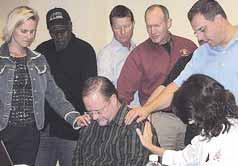

USMB adjusts 2012-2013 budget
J Edward Epp, a veteran USMB pastor, has been hired as the USMB director of development. Epp began this full-time position Oct. 1 and works from his home in Henderson, Neb.


The USMB Leadership Board approved adjustments to the 2012-2013 budget when it met Oct. 12-14 in Denver, Colo. Ed Boschman, USMB executive director, and David Hardt, Board treasurer, identified several reasons for needing the adjustments: Church contributions are almost 20 percent lower than budgeted and the director of development position went unfilled for the first four months of the fiscal year, which negatively impacted projected income. Delegates to the 2012 USMB national convention had approved the aggressive $1,018,524 budget that represented a 20 percent increase over the previous year.
USMB staff members identified $77,370 in budget reductions, mostly in travel and communication-related endeavors and as a result of shifts in program needs. These reductions reduced the expense budget to $941,154. Projected income from churches was reduced from $420,000 to $400,000 to more accurately reflect the present level of church giving, and staff fundraising was dropped from $411,284 to $256,000.
Meeting in executive session, the Leadership Board decided not to pursue additional cuts but to look for other ways to secure the almost $90,000 in additional income needed to continue moving forward with both existing and new programs.
The Leadership Board was buoyed by the news that Mission USA has met the goal of planting six new churches this year: Axiom Church in Peoria/Glendale, Ariz.; Christ Church Sellwood, Sellwood, Ore.; Grace Point @ McAllen, McAllen, Texas; The Stone, Denver, Colo.; Mountain View Sunnyside, Fresno, Calif.; and a coming church plant in Spokane, Wash.
The board also heard reports from USMB staff members, including new staff member J Epp, who began working Oct. 1 as the USMB director of development. Epp is pictured surrounded by Leadership Board members offering prayers for his ministry.—Connie Faber

As director of development, Epp is responsible for coordinating public relations initiatives and designing and implementing fund development programs. He will be developing a holistic program that includes major gift fundraising, capital development, planned giving and annual giving. Epp will travel extensively throughout the USMB constituency.
Epp, a 1995 graduate of MB Biblical Seminary, has 16 years of pastoral experience in USMB congregations. Most recently he was lead pastor at Henderson (Neb.) MB Church. Epp has also been actively involved in the work of the Central District Conference (CDC) and the national conference. —USMB
BFL hosts study conference
The USMB Board of Faith and Life (BFL) will be hosting a study conference Jan. 24-26, 2013, in Phoenix, Ariz., focused on reviewing two articles of the Confession of Faith: Article XII (The Society and State) and Article XIII (Peace and Nonresistance). Pastors, church leaders and others interested in the topic are invited to attend.
Registration information is available online at www.usmb.org/2013-study-conference. Registration and hotel reservations are due Jan. 11.
To make hotel reservation call 1-800-663-1144 and ask for "USMB Churches" to receive the special rate of $99 per night. If you have any difficulties in making your reservation, please contact the hotel sales office at 602-286-1125 or email Phillip Richardson: prichardson@coasthotelsusa.com. Or contact Donna Sullivan at 1-800-257-0515 or offices@usmb.org. —CL
FPU passes enrollment milestone
Traditional undergraduate enrollment passed a milestone in the fall of 2012 at Fresno Pacific University, surpassing 1,200 for the first time in the Mennonite Brethren school’s 68-year history. Fresno Pacific Biblical Seminary enrollment also grew, from 116 in 2011 to 143 in 2012. A total of 3,460 students study at the Fresno, Calif., campus and at centers in Merced, North Fresno, Visalia and Bakersfield, down from 3,603 in the fall of 2011. Large graduating classes and strengthened requirements led to decreases in bachelor’s degree completion and graduate programs other than the seminary. —FPU
CDC appoints Eshbaugh; Engbrecht retires
Rick Eshbaugh will be the new district minister for the Central District Conference (CDC), beginning Jan. 1. Eshbaugh is currently pastor of Harvey (ND) MB Church and will continue his pastoral role there, serving part-time as district minister. Outgoing district minister Roger Engbrecht, who officially retires Dec. 31, will continue working with the district’s eight ethnic churches on a part-time basis. The CDC consists of 26 churches in Minnesota, Montana, Nebraska and the Dakotas. CL
Tabor College celebrates growth
Enrollment growth at Tabor College set a new record for the fifth consecutive year with 768 students enrolled at the two campuses. Both the Hillsboro, Kan., and Wichita, Kan., campuses of the Mennonite Brethren-owned liberal arts college experienced growth for the 2012 school year. The Hillsboro campus has 613 students taking classes and the Tabor College Wichita campus has 155 students enrolled, including graduate and undergraduate students. This is the largest enrollment in Tabor’s history; the next highest enrollment benchmark for the Hillsboro campus was set in 1974.—TC

5 minutes with...
Bob and Juanita Hiebert


Sixty-two years of married life for Bob and Juanita Hiebert have included caring for countless foster children, ministering in the Christian Motorcyclists Association, singing in the choir and teaching Sunday school. Nine years ago, when Laurelglen Bible Church of Bakersfield, Calif., sent 80 members to plant a new church, the Hieberts were the only senior-age members of the team. Bob shares these reflections:
I understand The Bridge is not your first church planting experience.
We were with Ed and Carol Boschman at the groundbreaking at Laurelglen, and 25 years later we were at the groundbreaking of The Bridge.
Was it hard to decide to help plant a church at this stage of your life?
When our pastor started talking about Laurelglen having an outreach church, we wanted to be part of it. It didn’t materialize for six or seven years, but when the me came we didn’t have any second thoughts.
What did you have to give up?
We dras cally miss the hymns and singing in the choir. Church service is now a Chris an rock band and a sermon. But we’re bringing in people who have never been churched and who love the good Chris an loud music.
How has your life experience helped you minister here?
When young families go through foreclosure I can put an arm around them because I’ve walked that road several mes. I can tell them, “Don’t play games. We fail somemes, but the bo om line is the faithfulness of God.”

You are both in your 80s now. How long can you keep this up?
I have a friend who has been involved with me in Chris an motorcycling. He and I made a vow that we will burn out and not rust out. Juanita and I would miss so many blessings if we ever began thinking we’ve “served our term” and rered from ministry.
Interview by Kathy Heinrichs Wiest








by JARED BURKHOLDER
Delving into the “I-wish-we-knew” questions deepens our understanding of the Christmas narrative
As we study the Christmas story there are hundreds of interpretive questions that come to mind. I call them “I-wishwe-knews.”
Why don’t Joseph and Mary wait until Jesus is born to travel to Bethlehem? I wish we knew if Caesar Augustus’ decree creates a sense of urgency by setting a deadline? Is Mary and Joseph’s only plan to stay in Bethlehem’s inn and deliver Mary’s first baby themselves?
I spent most of my adult life searching for answers and solutions to the many questions I have about the accounts of Jesus’ birth in Matthew and Luke. My quest has convinced me that we need to take a fresh, new look at this old, old story. The “real” Christmas story should be a narrative that is solidly rooted in the biblical text, consistent with common sense and up front about what historically we do and do not know with certainty. It should be a narrative that reflects first century, Middle Eastern values and culture and a story that is supported by archeology, geography and linguistics.
One does not have to probe too deeply to discover the difficulty 20th century Western civilization has understanding the power of community and hospitality, obsessed as it is by individualism and pulling one’s self up by his or her own bootstraps. First century Middle Eastern hospitality was a badge of honor, and that part of the world became renowned for its depth of commitment to welcoming guests. Hospitality was an act of kindness that involved a commitment to house, feed and protect family, friends and strangers. Hospitality is the value that prompted someone in Bethlehem to open his or her home to Mary and Joseph. So who is this family? We can’t discover their names, but what about their identity by category? Were they relatives or non-relative residents?
Since hospitality in general and staying with relatives in particular were first century cultural norms in the Middle East, it is reasonable to conclude that Mary and Joseph plan to stay with relatives once they get to Bethlehem.
After all, Bethlehem is the hometown of those from “the house and line of David”—Joseph’s lineage (Luke 2:4). Joseph undoubtedly has plenty of relatives with whom he and Mary can stay while in Bethlehem. It seems reasonable to conclude that Joseph knows his extended family in Bethlehem and is confident that he and Mary will be well attended to by family in Bethlehem.
To ignore the high value Middle Eastern culture places on family and hospitality makes Mary and Joseph and their families appear shortsighted, incompetent and rather foolish for not thinking through the implications of sending pregnant Mary and Joseph off to Bethlehem by themselves to have their first child.
The fact that the traditional Christmas story replaces this Middle Eastern commitment to family and hospitality with Western individualism and isolationism illustrates how far the Christmas tradition has strayed from reality. Though the text does not explicitly mention the involvement of relatives, first century readers would assume their involvement. Jesus’ birth in the home of a relative assisted by a midwife fits harmoniously with both the culture and the text as the story unfolds.
While the Bible does not mention who hosted Mary and Joseph, it does tell us some things about the place where Jesus is born. “While they were there, the time came for the baby to be born, and she gave birth to her firstborn, a son. She wrapped him in cloths and placed him in a manger, because there was no room for them in the inn” (Luke 2:6-7).
Over the years, Bible interpreters have concluded that it is reasonable to assume that because Mary places Jesus in a feed trough, she and Joseph are homeless and have sought out the protection of a stable because they have no other place to stay—the inn is sold out. But a closer look at these verses supports the idea that the couple is staying with family.
The Greek word “kataluma” is translated as “inn” here in Luke. This word appears two other times in the New Testament (Mark 14:13-15; Luke 22:8-12) and both are translated as “guest

room” in most English translations. So it seems that a better translation in Luke 2 would be guest room. If the translation “guest room” is used, we are then more apt to conclude that Joseph and Mary’s plan is to find lodging in the guest room of a private home, probably that of a relative. When the baby is born, however, Mary and Joseph are not in the privacy of the guest room as one would have expected, and the text tells us why. It is because the guest room is occupied.
Although I have never seen a Christmas pageant that has a group of people already visiting Joseph and Mary when the shepherds arrive, that is exactly the picture Luke paints for the reader in Luke 2:1620. After the shepherds tell their incredible story, Luke adds, “and all who heard it wondered at the things which were told them by the shepherds. But Mary….” (Luke 2:18-10 (KJV))
So instead of Mary and Joseph being isolated and all alone, they are literally surrounded by family and friends.
Another reason we often picture Jesus as born in an isolated stable instead of in the home of relatives is because Mary places her newborn in a manger, and we assume feed troughs are only found in stables.
However, not all but many houses in the Middle East were designed with a small, lower level for the animals at one end. About 80 percent of the single room is a raised terrace, often about four feet higher than the level for the animals. The two levels are connected by a short set of stairs. Feed troughs are built into the floor of the raised terrace where the animals eat. The family cooks, eats and lives on the raised terrace. Nearly one hundred photographs have been taken and scale drawings made of a variety of such peasant homes.
So by (1) understanding the cultural expectation that Joseph and Mary would stay with family while in Bethlehem, (2) changing the translation of “kataluma” from “inn” to “guest room,” (3) knowing that homes at the time of Jesus’ birth included a place for animals (4) remembering that feed troughs can be in a house, not just in stables and (5) observing that there were others with Mary and Joseph when the shepherds tell their story, we come at least a giant step closer to the real Christmas story.
Reevaluating the Christmas story, however, is more than some kind of biology lab experiment to be dissected and analyzed intellectually like a “pick-
led” frog. Bible study is about life change. Bible study calls us to respond, challenging us to integrate faith and life. To paraphrase 1 Corinthians 13, if I have all knowledge and understand the Christmas story better now than I ever have before, but do not demonstrate God’s sacrificial, gave-his-oneand-only Son kind of love, then I am no more than a beautifully wrapped Christmas present with nothing inside.
The gift of family is one point at which this new reading of the biblical account of Jesus’ birth challenges us to live out God’s great love. Just as God placed his son Jesus in a family, God, in his sovereignty, places us in families that bless us and shape us through both positive and negative experiences. How will you celebrate God’s gift of family this Christmas season?
Consider thoughtfully preparing an individualized blessing for your spouse and each of your children and/or grandchildren. Capture in figurative language qualities in their lives that you believe God has given them to be a blessing to others. Be intentional about giving this gift: pronounce the blessing upon each one in a family setting.
On the brink of divorce this Christmas? Finding it difficult to forgive someone in your family or to give someone a second chance? Ask God to help you unconditionally love others the way he loves you. Wait patiently for God to do what only he can do.
Thank God this Christmas for your biological parents, as well as, perhaps, your adoptive or foster parents. Joseph, Jesus’s nonbiological father, profoundly influenced him.
Thank God for your relatives. Proudly represent your family name. Ask God to help you continue, or perhaps by his grace begin, a godly legacy for future generations.
Jared Burkholder is the author of Closer to the Real Christmas Story, from which this article is adapted. Burkholder was pastor of Parkview MB Church in Hillsboro, Kan., for nine years and was a college professor and administrator at Grace University, Omaha, Neb., for 20 years. Closer to the Real Christmas Story was published in 2012 by Dorrance Publishing Co., Inc., of Pittsburgh, Pa. Heather Marx illustrated the book, intended as a discipleship tool for families, small group leaders and Sunday school teachers.



Joyfully claiming Mennonite Brethren distinctives, theology and history





“Do you drive a horse and buggy?” a co-worker asked when I told her I had joined a Mennonite Brethren church. This was the first of many confused and curious responses I have received when I tell people I am a Mennonite.
We don’t always know how to answer when asked, “What is a Mennonite?” But it is an important question, and how we answer reflects our confidence, pride and knowledge of our spiritual heritage.
My story
Let me begin by reviewing my journey to faith and my decision to become Mennonite Brethren. I grew up in Fresno, Calif., and religious faith was not part of my home life. I went to Sunday school as a child out of family tradition, yet it made little spiritual impact. During my high school years, I became a Christian through the ministry of Campus Life and then served in a junior high ministry with Youth for Christ for three years.
After two years of college I wanted to pursue full-time ministry. A friend told me there was a small Christian college in town called Pacific College, now Fresno Pacific University. After graduating from Pacific College, I attended Gordon-Conwell Seminary in New England. With an enrollment of 600-plus students from 40 different denominations, it was an eye-opening experience. I soon decided that I needed to be part of a church denomination with beliefs strongly based on Scripture.
At this point I was faced with a dilemma. The two denominations I knew best were Foursquare Gospel and Mennonite Brethren. I went back to the Anabaptist theology books I had studied at Pacific College. After months of study and prayer, I chose to become Mennonite Brethren.
I made this decision because of our distinctive theology:
• We are Christ-centered.
• We believe Jesus is God.
• We believe the Bible is the inspired Word of God.
• We practice radical discipleship and follow the Sermon on the Mount.
• We practice nonviolence.
I am proud of our distinctives and theology. They are why I am Mennonite Brethren.
Challenges we face
I believe one challenge we face, as churches and as a denomination, is explaining to other people who we are as Mennonites and doing so in a positive manner that makes a person want to pursue spiritual issues from an Anabaptist perspective.
One challenge to telling our story is the misconceptions people have of us. According to two surveys commissioned by Mennonite Board of Mission, an agency of Mennonite Church USA, 82 percent of those who have heard of Mennonites have a distorted perception. Most associate Mennonites with beards, buggies and old-fashioned clothes. Some people focus on misrepresentations of Mennonites and never see our distinctive. As a result, they never see Jesus!
Another challenge is the tendency to equate Mennonite Brethren with a certain ethnicity. Now there’s nothing wrong with ethnicity. That’s how God
by JIM AIKEN







created us. But associating a denomination with certain ethnicities or religious traditions can hurt our ministry.
“The stronger the ethnic culture, the more difficult it is to fulfill the Great Commission,” cautions Lyle Schaller, author and church consultant.
The reason is simple. If an ethnicity is equated with church and you’re not of that ethnicity, two things go through your mind: Maybe I don’t belong here. Maybe their beliefs don’t apply to me. Both thoughts can lead to the sad conclusion that this church is irrelevant.
While the spiritual forebearers of the Mennonite Brethren Church are German-speaking Russians, today the Mennonite Brethren Church is a global fellowship. While there are 30,000 Mennonite Brethren in the U.S., and 40,000 in Canada, there are 100,000 in Congo and 200,000 in India. Mennonite Brethren churches can be found in Africa, Asia, Central America, South America and Europe as well as North America.
Claiming our history
We also must admit that sometimes we want to hide our spiritual heritage. Some prefer that we downplay our Anabaptist distinctive so that we will blend in with other evangelicals. Some will say, “We’re just like the Baptists,” which is not true or wise. When we do this, we lose our distinctive.
Over the years I have found that being familiar with our historical origins is helpful when I explain who I am as a Mennonite Brethren. If someone is open to a serious conversation, I take three or four minutes to briefly tell our story. My version goes something like this:
In the early 1500’s a Roman Catholic priest named Martin Luther came to a new understanding of salvation. He realized a relationship with God was experienced by grace, through faith and not religious church traditions. This transformed Luther’s life and thinking, prompted him to attempt to reform the Roman Catholic Church and led to a religious movement known as the Reformation. When the Catholic Church resisted Luther’s efforts, other believers joined Luther to protest for change, and they were labeled “Protestants.”
There was a group of believers who felt Luther didn’t go far enough, especially in regards to baptism. After studying Scripture, these believers concluded that baptism was only for people who had decided to believe in Jesus. They promoted “believer’s baptism” and rejected infant baptism.
To reject infant baptism in the 1500s was very radical. Catholics and Luther equated infant baptism with salvation, thinking that original sin is cleansed in baptism.



Luther saw believer’s baptism as heretical and argued that Scripture did not support it. Catholics saw it as criminal, insisting that it broke the law.
At that time, the church and government worked closely together. For example, when a baby was baptized, the family paid taxes to the government. To not baptize a baby was seen as a refusal to pay taxes. Luther and the Catholics gave this group of heretics a nickname — Anabaptists, meaning “re-baptizers.”
In every religious movement, there are extremists. Anabaptist extremists existed in the German town of Muenster. Zealous for the second coming of Christ, they forced people to be rebaptized, killing those who refused. After a yearlong siege, soldiers killed everyone in the town. Authorities believed violence was the only way to control Anabaptists, and 200,000 Anabaptists were killed over the next 50 years.
A third option
During this time, a Catholic priest in the Netherlands was shocked that people would die for their view of baptism. So he carefully studied Scriptures and as a result, he became an Anabaptist himself. He began writing pamphlets supporting Anabaptist teaching and nonviolence. People began following this former priest whose name was Menno Simons. His opponents nicknamed his followers “Mennonites,” a term used to ridicule them.
Mennonites were not part of the Catholic Church, and they were different from other Protestants. They became a third option for believers and were known as the Radical Reformation. In some ways, they were the “emerging church” of the 1500’s, seeking to return to biblical standards of beliefs and lifestyles instead of just following the religious status quo.
In the 1500’s, people were willing to die for believer’s baptism, salvation through Christ alone, the Bible as the final authority for belief, discipleship, separation of church and state and nonviolence and peacemaking. We can be proud of this heritage.
When people hear the word “Mennonite,” do they think of a cultural distortion or a true and biblical distinctive? At one time, “Mennonite” meant a radical follower of Jesus. Do people think that today? I think our goal should be a return to that far-reaching discipleship. We can be confident and proud of our spiritual heritage. Are we willing to live out a radical faith? I believe doing so would please Jesus.
Jim Aiken is lead pastor of Dinuba (Calif.) MB Church.
A president’s final thoughts regarding FPU, Christian higher education
Editor’s Note: Nearly every Monday morning that Merrill Ewert served as president of Fresno Pacific University, he sent an email message to the faculty, staff and trustees of the university called “Merrill’s Monday Morning Memo.” While his final note was intended for the FPU community, Ewert’s words challenge all of us involved in Christian higher education and who support these institutions.
In 10 years of Merrill’s Monday Morning Memos, I’ve written nearly 2,000 pages and more than a million words. Although there’s probably very little left unsaid, I leave you with some final thoughts:
Cling to Jesus. While rebranding Fresno Pacific several years ago, we added the following words (drawn from 1 Corinthians 3:11) to the university logo: Founded on Christ.
Another Christian university once used the same words on its logo. Then it hired a president who brought renewed energy, sharpened the institution’s vision and increased its academic reputation. Excited about the appointment, people overlooked the fact she was also Jewish. Quietly and without fanfare, the words, Founded on Christ, disappeared from the logo. Two decades later, there’s barely a trace of the university’s founding faith tradition on its website.
People often talked with me about the “slippery slope” on which some evangelical institutions lost their “Christian” moorings. I believe three things can prevent this. First, it doesn’t happen when the board remains thoroughly, completely and committedly Christian. Second, presidents with a deep faith, an abiding commitment to Jesus and a view of higher education as ministry help institutions retain their Christian identity. Third, when faculty and staff clearly
demonstrate a deep and personal relationship with Jesus, universities remain Christ-centered.
I pray this will ever be so at Fresno Pacific!
Be agents of shalom. C.S. Lewis calls Christians to recapture society, culture and all creation for Jesus Christ. Today as the culture wars tear our society apart, someone must demonstrate another way. The Hebrew concept of shalom is an integral part of FPU.
Scriptural shalom reflects a transcendent wholeness that includes health, welfare, tranquility, prosperity, perfectness, fullness, rest and harmony. The Bible calls us to bring shalom to the community, reconcile warring peoples to each other, promote justice and inspire hope.
Individually and institutionally, God calls us to bring redemptive love into our relationships, our work and our communities. Unfortunately, some of the angriest people I know are Christians. I’m embarrassed at the words and actions of some who claim to be followers of Jesus. Too many speak and act with little regard to the consequences; they tear down and destroy without feeling any obligation to replace it with something else.
I pray Fresno Pacific will always live as the people of shalom, especially when the cultural warriors would divide us.
Courageously speak into the culture. At FPU, we often discuss the university’s

by D. MERRILL EWERT
prophetic role as laid out in the Fresno Pacific Idea. Being prophetic means transforming society.
Christians once occupied the center of intellectual life in this nation. Over the past 200 years, however, we’ve marginalized ourselves, Mark Noll argues in The Scandal of the Evangelical Mind. We haven’t participated fully in the hard intellectual work of the academy. Rather than helping create new knowledge, he suggests, many Christians have chosen the easier path— focusing on the application of our disciplines and service to humankind. The latter are important, but engaging in scholarship can help shape the nature and direction of our fields of study.
Our society needs more Christian scholars who speak out boldly. I was a young professor when Nobel Laureate Aleksandr Solzhenitsyn gave his famous Harvard commencement address in which he said, “The Western world has lost its civil courage….” His call for moral leadership, grounded in a deep and abiding commitment to our Lord, remains equally urgent today. That speech infuriated many in higher education but became required reading for my classes.
I pray Fresno Pacific will always be known for outstanding Christian scholars who examine the big issues and courageously speak into the culture.
Remember that it’s God’s work. Over the past decade, Fresno Pacific trustees have often reminded each other of Psalm 127:1: “Unless the LORD builds the house, its builders labor in vain. Unless the LORD watches over the city, the watchmen stand guard in vain.”
Several years ago, I received an email from a former doctoral student who had become a professor on the East Coast. I was startled by the subject line: Follower of Jesus!!!!
She had been a Peace Corps volunteer in Asia when several MCC workers convinced her to pursue graduate training at Cornell where they knew this “Mennonite professor.” Life was tough for this young, single mom. My Christian graduate students and I walked with her through separation, divorce and the pressures of life. Before finishing her Ph.D., she began attending a “mainline” church and calling herself a “Christian” because, she told me, she now attended church regularly. She also wasn’t a Muslim (like her ex-husband) and believed in the values of community, peace and justice about which she heard in church.
Now in her email, she explained that her heart was overflowing with joy because she had found Jesus as her personal Lord and Savior. “I now pray for my graduate students just as you used to pray for us!” A few days later, she flew across the country just to tell Priscilla and me how God had transformed her life. She now understood what she had seen in those MCCers, heard in my office and experienced in our home.
I pray Fresno Pacific will faithfully tell the good news but understand that God gives the increase.
Aspire to greatness. I titled my FPU inaugural address, “Called to Excellence!” I noted that when God created the earth and everything in it, he didn’t say, “That’s good enough.” Nor did he suggest, “Not bad for a Thursday.” Rather, at every step, the Lord labeled his creative work “good.” He set the bar high; so should we. God gave us enormous capacity to learn, grow and use our knowledge and skills for the kingdom. He calls us to excellence.
Author Jim Collins famously suggested that “the good” is the biggest enemy of “the great.” Settling for “good enough” keeps us from becoming “great.” Great athletic teams have a burning desire to win; world-class musicians aspire to be the best. If we demand excellence of ourselves, we’ll also get it from our students.
Research shows that when students choose a college, the most important factor in that decision is how they perceive an institution’s academic quality. We seek to demonstrate a culture of excellence to attract and retain the best students, but we also do it to realize our full, God-given potential. We strive for excellence to honor the God who created that capacity within us.
I pray Fresno Pacific will always aspire to greatness!
A blessing. As Priscilla and I leave Fresno Pacific, I challenge us all to cling to Jesus, the center of our faith. Be the agents of shalom in a world that is torn by conflict and in desperate need of reconciliation. Drawing on your scholarship, speak courageously into a culture that is looking for meaning, purpose, direction and hope. Aspire to greatness, but remember that we’re doing God’s work.
We treasure the many friendships we formed in Fresno. We will remember the many kindnesses, words of encouragement and prayers on our behalf. We’ve been blessed and shaped by our time at Fresno Pacific. Thank you! And now, we leave you with the words of that ancient Irish blessing:
May the road rise up to meet you,
May the wind be ever at your back.
May the sun shine warm upon your face
And the rain fall softly on your fields
And until we meet again,
May God hold you in the hallow of his hand.
With love, Merrill and Priscilla Ewert
Merrill and Priscilla Ewert served Fresno Pacific University for 10 years. They are currently living in Washington, D.C., where Merrill is working on a project with several higher education associations.
Kindness comes in blue and yellow
$18 million trust buys peace one grocery bag at a time
JoJae Glanzer stands near the customer service counter in the Mitchell, SD, Kmart waiting to see who will show up this time. He has been there scores of times before, scanning the checkout lines for a pair of eyes that are seeking his own. The eyes will meet his glint with recognition and appreciation as they recognize his South Dakota State University blue and yellow baseball cap.
Sometimes it’s an elderly woman in the checkout line, a sweater and a pair of slippers in her shopping cart. Other times it’s a dad and mom with four kids, their basket piled high with coats and boots and thick winter socks to keep the children warm through this winter and probably the next.
The checkout clerks look forward to Glanzer’s regular visits. It’s sort of like Christmas, with Glanzer playing Santa. Although he doesn’t personally know the shoppers he meets up with, Glanzer is there with a checkbook to pay for these essentials for people who would otherwise have to go without.
The checkbook Glanzer carries draws on an account administered by Salem MB Church in Bridgewater, SD, with funding from the estate of John D. and Edna Hofer. (See sidebar.) The Hofer estate provided an $18 million endowment that, through seven beneficiaries, supplies food and clothing for thousands of South Dakota families. Salem MB dispenses the funds under the endowment’s clear and narrow guidelines—providing food and clothing for the “poor and needy.”
John Hofer died in 1991. Glanzer was church treasurer in 2002 when Edna passed away and the trust was put into effect. He and Arnold Hofer from Salem MB attended the meetings on the
The story of the Hofer Trust

church’s behalf and, together with a small committee, took on the task of preparing the proposal that outlined the way the congregation would distribute the money within the estate guidelines.
John D. Hofer grew up at Salem MB Church in rural Bridgewater, SD, and became a dentist in nearby Parkston. He and his wife, Edna, were childless and left an $18 million trust fund “to purchase food and clothing for hungry, poor and needy who need such subsistence and care and reside in the state of South Dakota.”
Seven entities carry out the mission of the trust. Four social service agencies—The Salvation Army, The Union Gospel Mission of Sioux Falls, St. Vincent de Paul of Sioux Falls, and Goodwill Industries of Sioux Falls—administer the bulk of the approximately $700,000 distributed each year.
The Hofers also named three churches as beneficiaries: John’s home church of Salem MB, Edna’s home congregation of Bethany Mennonite in Freeman, SD, and United Church of Christ in Parkston where they were members as a married couple.
Each year the seven entities submit proposals which are evaluated by the Trustee, First National Bank South Dakota. The bank determines the distribution and reviews the documentation from each beneficiary to ensure that the funding is fulfilling the trust’s guidelines.
If JoJae Glanzer is Santa Claus to the South Dakota families assisted by the Hofer Trust, the KMart clerks are Santa’s elves.
Kaleidoscope Photography
Ten years later, Glanzer and his wife, Judy, are still administering the church’s grant and have assisted 238 adults and 273 children in the small rural communities within a 30-mile radius around the church.
Judy enjoys paging through the 10 years of notes from clients documenting the difference these grants have made in people’s lives. In neat handwriting one young mother expresses her appreciation: “Thank you for all the help you have given us. Knowing there is food on the table helps ease the burden quite a lot. It feels like early Christmas.”
Another woman says “I just want to thank you so much for the money for food. It’s been a long hard road without child support from my ex-husband. Thank you for your support.” This single mother just needed help “to get over a rough spot,” Judy recalls, and within a few months she was able to make it without the assistance.
It is no simple matter to distribute tens of thousands of dollars in food and clothing every year, but the Glanzers and Salem MB have developed a comprehensive program to do just that. Local smalltown grocers are key partners, setting up credit accounts with the Hofer Trust clients. Each household is given a certain amount to spend at the grocer and may shop up to three times a month charging against the credit that the trust pays off monthly.
“When you’re from a particular town, that’s where your groceries come from,” says Judy, pointing out that sending their clients to the supermarkets in the larger cities would undermine the small town grocers. “We spend about $7,000 per month at these grocers.”
Grants typically provide $70 per month per household member. As the last quarter of the year approaches, the Glanzers often adjust the grants so that the fund ends the
year with a zero balance. As with the manna in the wilderness, money cannot be held over for the next year, and future grants are affected by how well funds from the current year were spent.
“This fall we’ll send out a letter telling them that the amount will be reduced to $50 to make our money stretch a little,” says Glanzer.
“It’s better to decrease everybody than to run out of money right before Christmas,” Judy says.
Each year the Glanzers submit a proposal for the next year’s program. “It’s kind of a shot in the dark,” says JoJae. “Last year we proposed a 30 percent increase, but we have almost doubled the number of families.”
The church’s first grant in 2002 was $20,416. The amount has grown nearly every year. For 2012 they applied for about $100,000, but only got $67,000, an amount that has to be





Judy Glanzer, shown here shopping in KMart, enjoys reviewing 10 years of notes that share how grants administered by Salem MB Church have made a difference in people’s lives.
Kaleidoscope Photography
stretched to serve the 35 families currently on their rolls.
“Since about May we have been sending out four or five applications every month,” Judy says. “That is unheard-of in the 10 years we’ve been doing this.”
Last year the fund had a surplus, and the Glanzers were able to double the grocery grants toward the end of the year. With tears in her eyes one woman told them how the extra had been a godsend. Her son, who was in the service, and his fiancé were planning to stay with her over the holidays. She had been wondering how she would feed them for the threeweek visit. The extra grant money made it possible for this mom to feed her children, including a special Christmas dinner.
The application process and grocery voucher is all done by mail correspondence, so Glanzer’s meeting with clients at Kmart is usually the first chance for a personal contact. New participants in the program are allowed about $120 per person to buy clothing. “Jewelry, purses or diapers are not included, but anything else is—shoes, sandals and all articles of clothing from skin on out!!” explains the letter the Glanzers send to new clients.
The letter sets up a day and window of time when Glanzer will be at Kmart and explains that the client should come to the checkout with their basket of clothes and look for him in his blue and yellow cap. That meeting often becomes the place where they hear clients’ stories and receive hugs of appreciation.
Although none of the funding for food and clothing comes from Salem MB, the church has found other ways to minister to Hofer Trust clients. “This ministry gives us a chance to be creative as a church family as we try to come up with various ways to reach out to people in need with the love of Christ,” said church pastor Mike Petts.
An introductory letter for new clients gives the pastor’s name and phone number, inviting them to be in touch if they need assistance or have questions. At Christmas many families receive a personal visit along with a care gift from the church. Some families have sent their children to the church’s vacation Bible school. Each Sunday the congregation prays for one of the households, while keeping client names confidential.
At the bottom of each piece of correspondence from the Hofer Trust Ministry is a Scripture verse the Glanzers selected when the program was established. “It came to me that these people are upset. They can’t meet their bills. They need the Lord’s peace,” Judy says.
They chose the comforting words of Jesus from John 14:27: “Peace I leave with you; My peace I give to you; not as the world gives do I give to you. Do not let not your heart be troubled, nor let it be fearful” (NASB).
In working with the program, Judy has found her eyes opened to the needs of their rural communities. “I’ve sometimes thought that because we are in an agrarian rural area we are insulated from the problems of the world. We live a kind of sheltered life, but all around us we hear about the divorce and abuse and alcoholism.”
The grants they are able to give seem small in light of the needs they know are in the world. But Judy has seen her faith strengthened as they trust God to make the most of these gifts. “We are dropping these things in a bucket. And we may never know where the ripples go,” she says.
A couple of years ago they met up with a man who had received some of the Hofer Trust groceries. His wife had been chronically ill and eventually died. He was unemployed and left alone to care for a 10-year-old daughter. Now some years later the man told JoJae, “You don’t know what a difference you made. I’m back on my feet again and it is thanks to you.”
Those stories are what have kept the Glanzers going in these 10 years of administering the Hofer Trust funds. JoJae sums it up: “The thank-you notes and hugs and tears are all I need because you know you’ve made a difference in someone’s life.” — Kathy Heinrichs Wiest
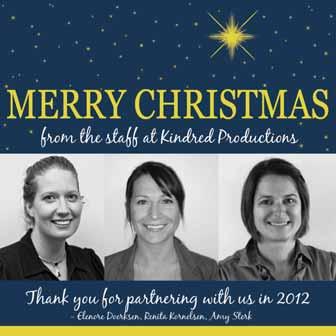
Perfectly prepared
Pete Menjares optimistic about future of FPU
Pete Menjares grew up in a rough neighborhood of Los Angeles, Calif., struggled in junior high and high school and explored partying and drugs before he committed his life to Jesus. Christian higher education wasn’t exactly on his radar.
But those early experiences help him understand the need for accessible education and Christian influence in a way that uniquely equips him to lead Fresno Pacific University (FPU), the Mennonite Brethren-owned university in California’s Central Valley. Menjares was inaugurated Sept. 28 as the 11th president of FPU.
Menjares became the first in his family to graduate from college, earning not only a bachelor’s degree in religion but also master’s and doctoral degrees in education. He has served as a teacher for at-risk students, a pastor, a professor and an administrator. He comes to FPU from Biola University, where he served for 18 years in both teaching and administrative roles. He and his wife, Virginia, have one grown daughter and three grandchildren.
CL assistant editor Myra Holmes recently talked with Menjares about his values, passions and dreams for FPU. Here are excerpts from that conversation. A longer version is posted online at www.usmb.org/christian-leader.
CL: What attracted you to FPU?
PM: One of the things I have been impressed with is FPU’s very strong Christian commitment. We are “founded on Christ.” That’s on our seal. That’s on everything that we are. I don’t ever want to take for granted the fact that that is a strength that I have received from those who have built this university.
The other thing that has resonated with me is FPU’s commitment to the community. Its core values of social justice, love and compassion have given it a wonderful opportunity to provide practical service in a way that has resonated with my own core values to be community-minded.
And then there’s the fact that FPU really reflects the Central Valley. It’s working directly with first-generation students and serving Hispanic students. It’s serving students who are returning to school in its degree completion program. Those are just wonderful features of the mission of the university that have really attracted me to it.
CL:What about the role of president excites you?
PM: This year I will be personally leading the university through a strategic planning process, and that plan will represent what our community believes to be God’s will for us over the next five years. That is always one of the most rewarding aspects of leadership: to lead an institution—in this case FPU—into uncharted territory and work together to discern God’s will for us.
CL: Is there anything about this position that scares you?
PM: I know that the job of a university president is very demanding, so I have to be on guard against allowing myself to be pulled in so many directions that I can’t provide focused leadership.
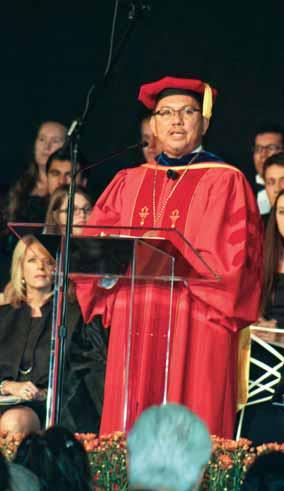
President Pete Menjares addresses the audience at his inauguration as FPU’s 11th president.
FPU
CL:When you need to recharge, what do you do?
PM: At least one day a month I get away to pray, reflect and read. That has been important because my leadership style is very relational, very collaborative, very pastoral. I have to be careful to retreat and be alone with God so that I can have the kind of energy I need to serve the very people I am inviting into my life.
CL:What are you most passionate about?
PM: Being able to be part of intentional leadership development is something that I am very passionate about, because our world needs leaders that are grounded, that are people of integrity, commitment and service. One of the things I hope to do here is implement intentional leadership development at the student, staff and faculty levels in order to see God raise up leaders for this generation. Together with that, I have been passionate about the diversity that makes up the kingdom of God. God has purchased for himself people from every nation, tribe and tongue. Yet we don’t often see that reflected on Sunday mornings in our churches, and it’s even rarer to see that kind of diversity reflected in our Christian colleges and universities. FPU has one of the highest populations of Hispanics studying, as well as great diversity across multiple ethnicities. To have an opportunity to see our university reflect God’s kingdom and to be identified with love, peace and reconciliation is something that really excites me.
CL: Since you do not come from a Mennonite Brethren background, what, if anything, are you learning to appreciate about the Mennonite Brethren?
PM: I feel that Virginia and I have been blessed with a national network of colleagues. We are a national movement. We are in partnership together for the gospel. That’s a wonderful, wonderful thing.
CL: Is it necessary in your opinion that the FPU president be involved in a Mennonite Brethren congregation?
PM: I do. Virginia and I are going to take our time and visit as many churches as we possibly can and then trust the Lord to confirm in our hearts where we are to be attending on a regular basis.
I think it’s important not only to be part of an MB church but also to have opportunities to be in many MB churches as a speaker or to bring a word of greeting or simply participate in worship. That would be a good thing for the denomination and the university.
CL: How do you hope FPU will grow or change in the coming years?
PM: I believe so strongly in the quality and the mission of our education that it would be my hope that prospective students would see us as the university of choice. That would bring great joy to me and would result in a greater number of students enrolling in our programs.
At the same time, we want to manage growth in such a way that our excellence is never compromised. That would mean continuing to develop our faculty professionally and building the infrastructure necessary to support growth. It would be my heart’s desire to see some of the buildings on our master plan come to fruition.
And all of that with a view to our mission. I have a hope and dream that FPU will become a leading Christian university and that we would be looked to by others for how to serve students, how to be effective in leading and serving our community and how to provide an excellent and outstanding education resulting in outstanding graduates.





The more things change...
Engbrecht looks back on three decades of Central District ministry
Roger Engbrecht has seen changes big and small in the Central District Conference (CDC) in over three decades of ministry. But some things—like a personal and district passion for church planting—remain the same.
Engbrecht has served in a variety of ministry roles in the CDC for a total of 33 years, the last 12 as district minister, making his the longest pastoral ministry in the CDC. He will retire from full-time ministry Dec. 31, although he will continue to work with the district’s eight ethnic churches. Rick Eshbaugh, pastor of Harvey (ND) MB Church, will take on the role of district minister.
As district minister since 2001, Engbrecht has poured time, energy and prayer into building relationships with pastors and churches in Nebraska, the Dakotas, Minnesota and Montana, traveling thousands of miles per year. Sometimes he has worked with churches to resolve conflict. Other times he has walked with congregations through change. Always, he has championed church planting.
The conflicts, he says, have been the most painful part of his work. While challenges are inevitable whenever sinful people meet, Engbrecht urges love. “It’s time for the church to be what Christ said we should be: salt and light,” he says.
In many areas of the district, especially the rural areas, changing demographics have hit hard. “I have a great appreciation for our rural churches,” Engbrecht says, calling those congregations “the backbone of our district.”
But the reality is that people are moving away from those rural areas. Many rural churches have responded to the challenge by reaching

out in new ways to those in their community. That kind of change, while good, isn’t necessarily easy.
“Change is always challenging,” Engbrecht says. “The message doesn’t change, but the method of how we reach people these days has to change.”
He’s seen churches close—sometimes because of conflict, sometimes the result of declining attendance. But he’s also seen God turn those endings into new beginnings. Take, for example, Millard Bible Church, Omaha, Neb., which closed in 2008. That facility is now home to Stony Brook Church, where hundreds of people are now hearing about Christ. Engbrecht says, “When we think something is done, God is just beginning.”
Through all the changes, Engbrecht and the district remain passionate about reaching people for Christ. Engbrecht says the greatest joys as district minister have come from seeing churches planted and lives transformed. He points out that more people come to Christ through new church plants than through any other method. That’s why he says, “We need to continue our efforts relentlessly in planting new churches.”
While financing a big church planting vision is a continuing challenge, Engbrecht is convinced that the resources are available if churches and individuals work together. “We’re capable of doing much more,” he says, as a district and as a national family of churches.
Engbrecht will undoubtedly continue to champion church planting, even in retirement. It’s just who he is. And, he hopes, it will continue to be integral in the CDC. “We’ve been highly focused on evangelism. I hope we’ll never lose that vision, that we’ll always be about the Father’s business of seeking to win the lost for Jesus.”—Myra Holmes
ROGER CNGBRECHT
Roger and Lucille Engbrecht conclude 33 years of full-time pastoral ministry.



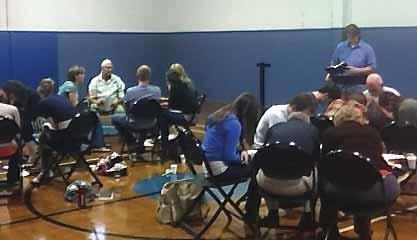














Don Morris Mission USA director
Together we plant churches
Why do we plant churches? Why spend the time, energy and money it takes to start new churches, especially when we have so many existing churches that could use a boost? Does church planting really make a difference? Why not simply allow big megachurches to do it? After all, they have the extra people and resources.
As someone involved in USMB church planting, I have intense feelings about these questions. If we are to follow the instructions of our Savior, then we must be about planting churches. Why? Because new churches have been proven over and over again to be the most effective means we have available to reach more people with the good news. The work and research of LifeWay Research, Acts 29, NewThing Ministries, ARC Church Planting Network, Exponential and many other national church planting organizations prove this to be true. New churches reach people for Jesus.
But don’t our existing churches count too? Shouldn’t we help them reach more people? Yes, and we are striving to help existing USMB churches and pastors be better equipped to do just that. It becomes a mix of nurturing the leadership of our existing churches and striving diligently to help plant more Mennonite Brethren churches all across the U.S.
In fact, the tagline of Mission USA is “To see more…come to know him!” My desire and the
3%Thispast year of all Protestant churches started new churches.

desire of the entire USMB staff is that many, many more people will come to know Jesus—that because of our tenacity to plant more churches there will be many more people in heaven.
If as a conference of churches we desire to follow the mandate of Jesus to go and make disciples, then that means planting more churches. And we do this together as a national conference of churches. We plant churches together!
Which brings me to a final, troubling thought. Over the past several months, church giving to USMB has lagged far below expectations and previous realities, and I don’t understand why this is happening. We are doing much more together than at almost any time in our history and yet receiving less financial support. At a time when we are attempting to reach more people for Jesus, we need more resources.
This is a challenging time for all of us. But people all across our nation are searching for answers. I’m humbly calling on us all as Mennonite Brethren to step up to the plate. Churches—we are depending on you to support USMB initiatives. We do it together. And what we are doing together is making a world of difference. We do need each church to help!
You will very soon receive a letter from Mission USA appealing for your financial support. We invite each individual/family to be prayerful and generous.


14%Thispast year of all Protestant churches financially supported new churches. This is a sad indicator of how American churches are involved in helping plant new churches.
Phoenix plant preparing for launch
Under the leadership of church planter Gavin Linderman, the core team of Axiom Church is preparing for an early 2013 launch of this new Mennonite Brethren church in the Glendale/Peoria area of Phoenix, Ariz. This is a partnership church plant of Copper Hills Church, Axiom’s mother church, the Pacific District Conference and Mission USA.
“In the eight years I’ve been director of Mission USA, this is one of the most gifted core teams that we have ever experienced,” says Don Morris, Mission USA director.
Two examples of the breadth of the core team’s capabilities, says Morris, are Megan and Sarah.
“Megan is a young, married and 20-something woman with significant worship-leading experience and will provide dynamic leadership for the many musicians that are a part of the core team,” says Morris. “Megan says simply that worship is all about communicating with God.”
Sarah is another young, married woman with a new baby who will provide direction for the children’s ministry. “A gifted and experienced teacher, she has a passion for making sure kids get filled with God’s Word along with the adults,” says Morris.
Sarah says, “We’ll have a fun curriculum that coincides with what the adults are receiving; that way the whole family can learn the same things together.”
Currently the church is in negotiations to secure a venue for the start-up. Indicating the importance of finding a good location, Linderman says, “We’re seeking a place that fits our worship needs well and is also at least reasonably easy to find.”
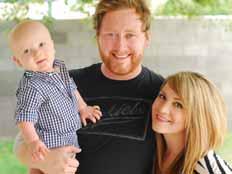
The core team is currently reviewing rental facilities ranging from an older church building available only on Sunday evenings to the new local Community Recreation Center that offers a large room for worship plus children’s areas.
“The facility is simply a launching pad for impacting the community throughout the rest of the week, especially since our main focus is on reaching people who don’t know Jesus yet,” Linderman says. —Mission USA
Grulla MB launches multisite ministry
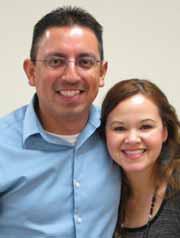
Grulla MB Church, La Grulla, Texas, has recently changed its name to Grace Point @ La Grulla in preparation for planting a multisite venue in nearby McAllen. The new Grace Point @ McAllen was launched Oct. 21 at the local Holiday Inn Express. Aaron Hernandez, Grulla’s current pastor, will lead both congregations.
Hernandez envisions a dynamic outreach in McAllen, a bustling Rio Grande Valley city of 300,000 people. These dreams coincide with a concurrent vibrant ministry at the main campus in La Grulla. Twenty-five people became new followers of Jesus during the church’s Sunday worship services Oct. 7.
“I am still celebrating all that the Lord did (on the 7th),” says Hernandez. “Amazing! We challenged our people to bring out as many friends, family and people on the street as they could. The challenge, taken from the story in Mark 2, was to one, step up; two, pick up; and three, see God move. Wow, did we ever see God move!”
This kind of passion for reaching people who don’t know Jesus yet will transfer to the new multisite campus. Mission USA is providing subsidy for the multi-site launch.—Mission USA
Gavin and Kendall Linderman, pictured with their son Emerson, are the lead church planting couple for Axiom Church in the greater Phoenix area.
Pastoral couple Aaron and Alejandra Hernandez are excited to be leading Grace Point @ McAllen, a new ministry site for the former Grulla MB Church.
Meg Cox

Creating your own holiday traditions
Sometimes when I lecture, I take along my family’s Christmas stockings to illustrate how family traditions have changed in one generation. When I grew up, we had four red felt stockings made by my mother, one for each of four children.
At my house, there is only one kid, but six stockings hang above the fireplace. These stockings are for my husband, our son, my stepdaughter, her husband, my husband’s ex-wife and myself.
Welcome to Christmas in the 21st century. There may be a radical difference in what constitutes a family today, but I think it is remarkable how much is unchanged.
I loved my childhood stocking ritual and I follow it exactly. On Christmas Eve, while my son is asleep, I fill his stocking and leave it propped against his bedroom door. He’s allowed to wake up early and open the contents in bed.
How well I remember the joy of finding that bulging red stocking outside my door and dumping the treats all over my bed! Even though the stocking always included an orange in the toe and a box of thank-you notes, there were also candies and surprises. It was like having a little private celebration before the loud family celebration downstairs next to the tree.
Not only do I follow my mom’s ritual, when I went to make my family’s stockings I literally traced around hers and cut the same size and shape. Our names were written in gold cording above the tree and so are the names of my family members.
My son is now 17 and though his stocking is usually found resting outside his bedroom door on Christmas morning, what happens to the rest of the stockings changes from time to time. If everyone comes to our house for the holiday, all the other stockings will have at least one small gift bulging inside on Christmas morn. But if we celebrate at my stepdaughter’s or her mother’s house, we bring just Max’s with us and leave the rest as holiday décor, hanging over our fireplace at home.
I think people get stressed out about big holidays partly because they think they’re required to create elaborate traditions that are completely original. Wrong! Feel free to turn any traditions you see, read or hear about into your own with the smallest of twists, just as I kept my mother’s tradition and tweaked the actual stockings only slightly.
Journalist and former Wall Street Journal staff writer Meg Cox specializes in family and quilting. Her website, www.megcox.com focuses on both of these topics that Cox describes as “wildly misunderstood.” A new and much-expanded edition of Cox’s The Book of New Family Traditions was published in May 2012.

My one tiny improvement: In my childhood, all our stockings were decorated the same with a green felt tree in the center decorated with sequins and surrounded by white felt stars. I decided to make each stocking slightly different by putting different “presents” under the tree. I hunted for cute themed buttons, specific to each person, that represent their passions. My son Max’s stocking has an airplane button and a tiny bear sewed under the tree.





Carmen Andres
A season of longing
This month, J.R.R. Tolkien’s Middle Earth returns to the big screen with The Hobbit The story takes place some 50 years before The Lord of the Rings, and it is here that we first encounter the Shire and Rivendale, dwarves and elves, Gandalf and Gollum and that infamous One Ring. It is here where we first encounter a world and story that echoes so much of our own.
Tolkien’s stories are rich and mythic, something that, says C.S. Lewis in his essay on the saga, “takes all the things we know and restores to them the rich significance which has been hidden by ‘the veil of familiarity.’” Good and evil, peril, anguish, joy—“By dipping them in myth,” says Lewis, “we see them more clearly.” Indeed it is one of those stories that sticks with you, a story “full of darkness and danger,” as Samwise Gamgee puts it, but in the end a “new day will come, and when the sun shines, it’ll shine out the clearer.” It is a saga filled with a deep sense of longing for that new day—an “anguish,” says Lewis, “of those who were happy before a certain darkness came up and will be happy if they live to see it gone.”
Perhaps it is fitting, then, that we visit Middle Earth again at Christmas—for both are full of this longing.
In the midst of nativity scenes and Christmas trees, we can forget the world Jesus was born into. God’s people were in the midst of one of the darkest times of their history. They’d spent centuries “trying to live out God’s design for Israel,” as Scot McKnight says in The King Jesus Gospel, “to govern this world redemptively on God’s behalf.” They failed.
Like the people of Middle Earth under the threat of Mordor, the Israelites lived under
Rome’s iron fist and longed for release and a restoration to the people God promised they would be. They yearned for a King who would set the world right. We feel this in Mark’s Messiah-heralding words from Isaiah (1:1-3), Mary’s Magnificat rent with longing (Luke 1:46-55) and John’s harkening back to the very in-the-beginning of a creation created good (1:1). They longed for a new day.
Jesus is the fulfillment of that longing—and through him God’s restoration explodes into a much vaster reality than dreamed by the Israelites: God’s people remade and empowered by the Holy Spirit, says McKnight, to be “servants of God’s love, peace, justice and holiness. This was … the right way to govern the world on God’s behalf: by loving others with everything we’ve got.”
Recalling the Israelite’s story is important because, as McKnight puts it, it is “the framing story for how to understand the gospel.”
Recalling only Christmas is like reading only one of Tolkien’s novels; we would know only part of the story. “To grasp the gospel,” says McKnight, “we have to grasp what God is doing in this world”—from creation to Jesus to the shining city on a hill.
Unlike Tolkien’s Hobbit and Lord of the Rings, our story is not yet over. Our worldrighted ending is yet to come—a glorious day in that city ruled by our King. We’ve tasted this new day, says Paul, but “these sterile and barren bodies of ours are yearning for full deliverance” (Rom. 8:22-25). Yet we are only “enlarged in the waiting,” a people once happy before a certain darkness and happy again because we know we will live to see it gone.
Carmen Andres is a freelance writer and former CL editor who lives in Alexandria, Va. She blogs at www.intheopen.blogspot.com.
BAPTISM/MEMBERSHIP
Lynette Hofer was baptized and received as a member Oct. 21 at First MB Church, Wichita, Kan. Chuck and Beth Holdeman, Jason and Linda Lansdown, Don and Toni Roberts, and John and Linda Oelze were also received as members.
Jacie Redcay was baptized and received as a member of Corn (Okla.) MB Church Oct. 28.
Brendon White was baptized and received as a member Sept. 16. Glenn, Carol and Rachel Detweiler were also received as members.
Claudia Ho, Karri Ann Peace, Taryn Jones, Kasie Jenkins, Jim Pennington, Wendy Smart, Patricia Guerrero, Amy Spencer, Andi Bridges, Eric Garland, Sarah Hahn and Caitlyn Scott were baptized Oct. 13 at The Bridge Bible Church, Bakersfield, Calif.
Travery Martin was baptized Oct. 28 at Grace Community Church, Sanger, Calif.
Ishmael Huggins, Gino and Theresa Skulick and Jeff and Alma Steimer were received as members of Shorelife Community Church, Capitola, Calif., Sept. 16.
Walter and Dolly Friesen, Joseph and Alicia Aragon, Nicole Stewart, Alissa Vongviset, Jan McMillan, William Garcia, Joel Ortega, Bobbie Harris and Irma Caldwell were received as members Sept. 30 of Butler MB Church, Fresno, Calif.
Jennifer Freeman was baptized Nov. 4 at Garden Valley Church, Garden City, Kan Justin Proffitt was received as a member Sept. 16.
Kerry Vaughan was baptized Sept. 14 at North Park Community Church, Eugene, Ore.
CELEBRATIONS
Reedley (Calif.) MB Church celebrated the groundbreaking of their new student center Sept. 16.
WORKERS
Mark Wadkins is serving as a bivocational pastor at Martin Box Church, Marshall, Ark.
Kerry Rosfeld is the new campus pastor at New Life Church, Ulysses, Kan., formerly Ulysses MB Church. He was installed Sept. 30.
Steve Ensz is the new senior pastor at Garden Valley Church, Garden City, Kan. Ensz, who previously served as youth pastor there for 22 years, was installed Nov. 11.
Kyle Stringer has resigned as youth pastor at Hesston (Kan.) MB Church
Rick Henderson began serving in October as pastor of adult ministries at South Mountain Community Church, Draper, Utah
Rick Bartlett concluded his ministry as pastor of Bethany MB Church, Frenso, Calif., and has accepted a job as director of theological education at Tabor College’s Wichita, Kan., campus. Roger Poppen will begin serving Jan. 6 as interim pastor.
Tyson Brockel is serving as a worship intern at Parkview MB Church, Hillsboro, Kan
Coalt Robinson, who has been serving in an interim role, has been called as pastor of Bethel MB Church, Yale, SD. Maynard Seaman will serve as associate pastor during the remainder of the school year, while Robinson finishes a teaching contract.
Mike Schellenberg began serving Sept. 1 as director of discipleship and outreach at Reedley (Calif.) MB Church
Ryan Doughty is the new pastor of discipleship at The Bridge Bible Church, Bakersfield, Calif.
Jay Risner was installed Sept. 23 as pastor of Enid (Okla.) MB Church
DEATHS
Dahlgren, Lori Lynn, Clovis, Calif., member of Bethany MB Church, Fresno, Calif., Feb. 19, 1963-Sept. 25, 2012. Parents: Richard and Valorie (Harder) Harrison. Spouse: Jeff.
Dowers, Ivan Wesley, Enid, Okla., of Enid MB Church, Jan. 4, 1918-Aug. 26, 2012. Parents: George and Saloma (Sewger) Dowers. Spouse: Shirley Reddick. Children: Amy Turner, Patti Reidhead, Vicki Seward, Keith, Bruce Eldred; nine grandchildren; two greatgrandchildren.
Filler, Roy R., Harvey, ND, member of Harvey MB Church, June 18, 1925–Sept. 11, 2012. Parents: Reinhold and Christiana (Goll) Filler. Spouse: Darleen. Children: Steven; two grandchildren; four great-grandchildren.
Franz, George Leroy, Fresno, Calif., member of Butler Church, Aug. 2, 1945- Sept. 29, 2012. Parents: George and Mary (Wiens) Franz. Spouse: Judy Harder. Children: Chris, Dave.
Froese, Jacob A., former MB pastor, died July 22, 2012. Parents: Abram and Margaret Froese. Spouse: Justina Esau, deceased. Children: Leonard, David, Viola Smith; six grandchildren; 10 great-grandchildren.

Teens “crave” Bible
How can a congregation encourage teens to make a daily habit of Bible reading? At Bible Fellowship Church, Rapid City, SD, youth pastor Kyle Goings initiated The Crave Project, a six-week daily Bible reading challenge written by the congregation. Goings and the youth leadership team invited the 160-plus people who attend BFC to write a one-page devotional aimed at teens. The contributions were then compiled into a booklet containing 46 devotions from 18 to 20 writers. Each entry includes a Scripture passage to read, a place to date when the material was studied, a storybased devotional, follow-up questions and the name of the author. In addition to the printed booklets, each day’s devotion was also uploaded daily to the youth ministry Facebook page. “We are doing everything we can to get youth into the Word of God on a daily basis,” says Goings. The challenge began Sept. 27 and concluded just before the Central District Youth Conference in November. It overlapped with a congregationwide campaign that challenged people of all ages to read the Bible every day for six weeks, using resources by Saddleback Church. For more on The Crave Project, see http://www.usmb.org/sd-congregation-publishes-devotional-booklet-for-their-teens.
Artists expand reach
Art Community for Christ, a ministry of Discovery Bible Fellowship, Collinsville, Okla., extended their ministry this fall by opening an art studio in downtown Collinsville. These Christian artists encourage each other and use art as a means to serve and express faith. The Studio: Art on Main, which opened Sept. 22, provides space for the artists to work and to display their finished projects. The new space is also used to teach affordable art classes, will host fundraising art events and be available to serve other ministries. For more, see http://thestudioartonmain.wordpress.com/.
Church plant gets fresh start
The Grove, a five-year-old Mennonite Brethren church plant in Fresno, Calif., has been re-launched as a satellite campus of Mountain View Community Church (MVCC), the congregation that originally planted it. A variety of factors at The Grove in the last two years, including leadership struggles, led to a decline in attendance and the need to consider other options. Mission USA, the USMB church planting and renewal ministry, and the Pacific District Conference are partnering with MVCC to restart the church. Mountain View Community Church Sunnyside is meeting at Fancher Creek Elementary School and had its public kickoff Sept. 23.

Hill, Paul Arthur, Dinuba, Calif., member of Dinuba MB Church, Nov. 8, 1929-Sept. 25, 2012. Spouse: Carol. Children: Carolyn Yanez, Renee James, Brenda Hoover; seven grandchildren; eight great-grandchildren.
Klassen, Maxine Beverly, Shafter, Calif., member of Shafter MB Church, June 28, 1926-Oct. 21, 2012. Parents: Frank and Anna (Unruh) Goertz. Spouse: Jim Klassen, deceased. Children: Robert, Phil, Jerry; six grandchildren; nine great-grandchildren.
Krause, Ann, Reedley, Calif., of Dinuba (Calif.) MB Church, Feb. 18, 1919-Aug. 26, 2012. Spouse: John, deceased. Children: Joanne Buller; three grandchildren; seven great-grandchildren.
Kroeker, Leland I., Shafter, Calif., member of Shafter MB Church, June 27, 1930-Oct. 22, 2012. Parents: Jake K. and Anna Kroeker. Spouse: Peggy Nikkel. Children: Linda Davis, Janet Thomas, Richard, Michael; eight grandchildren; six great-grandchildren.
Schlichting, Marvin D., Corn, Okla., member of Corn MB Church, Jan. 5, 1927-Oct. 7, 2012. Parents: Fredrick D. and Annie (Bushman) Schlichting. Spouse: Loree Huebert. Children: Sunya Notley, Marla Myers; nine grandchildren; two great-grandchildren. Schroeder, Leona Katherine Friesen, Liberal, Kan., member of Adams (Okla.) MB Church, Nov. 14, 1921-Aug. 19, 2012. Parents: Herman and Maria (Jantzen) Friesen. Spouse: David K. Schroeder. Children: Gary, Vernelle Unrau; five grandchildren; five great-grandchildren
Suderman, Art, Hillsboro, Kan., member of Hillsboro MB Church, May 6, 1932-Sept. 26, 2012. Parents: Dan and Edna (Harder) Suderman. Spouse: Harriet Klaassen. Children: Glenn, Debi Foth, Lori Thurston, David, Roxi Klein; 13 grandchildren; eight great-grandchildren.
Thomas, Henry Fred, Reedley, Calif., former MB pastor, Jan. 18, 1912-Oct. 5, 2012. Parents: Fred C. and Kathryn (Kroeker) Thomas. Spouse: Ruth Dick, deceased; Susie Martin, deceased. Children: Daniel, Arthur, nine grandchildren; 17 great-grandchildren; five great-great-grandchildren.
Warkentin, June Esther Heinze, Reedley, Calif., member of Reedley MB Church, April 25, 1924-Oct. 14, 2012. Parents: Andrew and Mollie (Steinert) Heinze. Spouse: Ervin John Warkentin, deceased. Children: Don, John, Tim; nine grandchildren; nine great-grandchildren.
reaching in
DISCIPLESHIP
At Enid (Okla.) MB Church, over 70 volunteers have committed to praying daily for 80 students in sixth grade through college.
Women from Bethany MB Church, Fresno, Calif., spent Oct. 20 at Carmel Beach in solitude with God. The church hosted a “Thrive in Marriage” seminar Oct. 26-27, featuring speakers and authors Vance and Margaret Hardisty.
A new weekly men’s group at Dinuba (Calif.) MB Church, called “Liontamers,” focuses on sexual purity.
North Oak Community Church, Hays, Kan., offered “Raising a Modern Day Princess,” Saturday mornings Oct. 6-Nov. 17. The goal of the class was to help fathers raise godly daughters.
Butler MB Church, Fresno, Calif., offered a four-week “money matters” course on Wednesday evenings Oct. 3-24. Community members were invited.
More than 100 people signed up for new “life groups” at Good News Fellowship, Ferndale, Wash. Life groups launched Sept. 21.
Discovery Bible Fellowship, Collinsville, Okla., invited all district churches to a Discipleship Training Seminar Aug. 19. Topics included: What is a small group; the importance of and how to stay connected to God; 10 things every group leader must keep in mind when leading a group in a postChristian era; holding a paradigm-shattering foundational first meeting; and five practices that create authentic Christian community.
FELLOWSHIP
Men from Bible Fellowship Church, Minot, ND, meet twice a month for breakfast.
Families from Parkview MB Church, Hillsboro, Kan., celebrated fall Oct. 28 with their annual Harvest Farm Festival, which includes a hayrack ride, wiener roast and drawings for gifts.
Men from Vinewood Community Church, Lodi, Calif., participated in a fly fishing clinic Nov. 10.
Shorelife Community Church, Capitola, Calif., held a men’s breakfast Nov. 3, with guest speaker Ray Brooks.
Neighborlinks, a luncheon for seniors at Garden Park Church, Denver, Colo., celebrated 20 years Oct. 16.
Buhler (Kan.) MB Church hosted a movie night Oct. 13, featuring “October Baby.”
North Fresno (Calif.) MB Church hosted “James and the Professor,” a Christian ventriloquist, Oct. 12.
Reedley (Calif.) MB Church hosted a concert of the 90-member Kiev Symphony Orchestra and Chorus Oct. 1.
Grace Bible Church, Gettysburg, SD, hosted an ice cream social in the city park Aug. 26.
Women at Zoar MB Church, Inman, Kan., were asked to bring a cup to exchange at a Sept. 18 event titled, “Fill up my cup.”
LOCALLY
Rosedale Bible Church, Bakersfield, Calif., has adopted a local school district with 800 students. Volunteers have donated electric pencil sharpeners, personal student white boards, markers and erasers for each student, along with teacher-requested items.
Cornerstone Community Church, Topeka, Kan., partnered with another local church in November to host the “Greater Topeka Poverty Meal,” an educational event and fundraiser benefitting the local rescue mission.
Volunteers from Belleview Community Church, Littleton, Colo., served a meal Nov. 15 to families at Joshua Station, a transitional housing ministry.
Community Bible Church, Olathe, Kan., sent a team to Joplin, Mo., the week of Oct. 21 to help with tornado relief under the direction of Mennonite Disaster Service.
“The Giving Center,” a new ministry partnership of First MB Church and Lighthouse Community Church, both of Wichita, Kan., aims to provide food, clothing and housewares to those in need. The ministry began Nov. 9.
Volunteers from Shorelife Community Church, Capitola, Calif., joined with other area churches to serve their community Oct. 20 for “Serve the Bay 2012.”
Kingsburg (Calif.) MB Church volunteers provided worship at two senior care centers, helped with fix-it projects for a disabled church member, assisted the City of Kingsburg with safety improvements and gardened and cleaned for a single mom for Faith in Action Sunday Oct. 7.
Several congregations hosted trunk-or-treat events in late October: Belleview Community Church, Littleton, Colo.; Grace Community Church, Sanger, Calif.; First MB Church, Wichita, Kan.; North Oak Community Church, Hays, Kan.; Stony Brook Church, Omaha, Neb.; The Heart Church, Tulsa, Okla.; Birch Bay Bible Community Church, Blaine, Wash.; and Buhler (Kan.) MB Church.
CLEARINGHOUSE
Job Openings
Local Church: Senior Pastor: Grace Bible Church, Gettysburg, SD, is searching for a full-time pastor with leadership qualities, who can relate well with young married/single adults. Our evangelical church is very social and outgoing with approximately 110 members. Send resumes and inquiries to Ray VanBockel c/o Grace Bible Church, 310 South Broadway, Gettysburg, SD 57442. (submitted 10/1/12)
Local Church: Associate Pastor for Youth: Kingwood Bible Church, a Mennonite Brethren congregation in Salem, Ore., is accepting applications for a full-time youth pastor. Kingwood is a family-oriented church, with emphases on worship and community service. We have an active youth ministry, serving 30+ middle school and high school students. The youth pastor will work with an oversight board and is expected to teach, direct activities and plan service missions. Other ministry opportunities as gifts and training allow. Salary commensurate with education and experience. Willing to consider an internship for the right college-enrolled applicant. To apply, send a cover letter and resume to KBC Search Committee, kingwoodapp@yahoo.com. To request a full job description or for other inquiries, contact: Ryan Kargel, kingwoodapp@yahoo.com.
Local Church: Pastor of Worship: Belleview Community Church, Littleton, Colo., is seeking a part-time pastor of worship to partner with the senior pastor to plan music, worship and implement Sunday morning service and special occasions and to train volunteers serving in this area and to take the point in leading a contemporary worship band. If interested send cover letter and resume to Mike Andrews at mandrews@belleviewchurch.org.
Local Church: Family Pastor: Belleview Community Church, Littleton, Colo., is searching for a part-time family pastor to provide leadership, oversight and an integrated approach to three areas: children (infants through 6th grade), youth (junior and senior high) and parenting. If interested, send cover letter and resume to Mike Andrews at mandrews@belleviewchurch.org.
Agency: Planned Giving Advisor: MB Foundation is accepting applications for planned giving advisor. This person, based out of the Fresno, Calif., office,
A quilting ministry at Grace Community Church, Sanger, Calif., makes comforters for the homeless.
A new “Work for Fun” initiative at Neighborhood Church, Visalia, Calif., encourages lowerincome students and families from a local elementary school to participate in various neighborhood service projects. Students earn service dollars, which they can use toward rewards such as sports leagues, art classes or kids camp.
Salem MB Church, Bridgewater, SD, organized a community-wide teen revival, held at Freeman Academy Nov. 3. The event included pizza, music, inflatables and games. Terry Hunt, pastor of The Life Center, Lenoir, NC, was the guest speaker.
Shafter (Calif.) MB Church, Iglesia Companerismo Cristiano, Shafter, and the City of Shafter worked together last summer on a summer reading and tutoring program, held on the campus of the Spanish-language church. More than 30 neighborhood children were encouraged in their reading skills, with rewards like pool parties, movies nights and field trips.
Volunteers from Enid (Okla.) MB Church helped assemble and distribute 350 backpacks with school supplies at a community back-to-school event Aug. 12.
will represent MBF programs and services to individuals and ministries throughout the West Coast. MBF is a service agency of the U.S. Conference of MB Churches. Salary commensurate with training and experience. If interested, send a letter and resume to: Jon C. Wiebe, President/CEO, MB Foundation, PO Box 220, Hillsboro KS 67063 jwiebe@mbfoundation.com
Event
The USMB Board of Faith and Life is hosting a Study Conference to be held Jan. 24-26, 2013, in Phoenix, Ariz. The conference will focus on Confession of Faith Article XII (The Society and State) and Article XIII (Peace and Nonresistance). All pastors, church leaders and others are invited to attend. Registration information is available at www.usmb.org/study-conference; registration deadline is Jan. 11, 2013.
Book
Life Lessons From a Montana Cowboy, a collection of short stories based on the author's experiences as a working cowboy, will appeal to all ages and walks of life. To order call 800-928-1240 or online at www.westbowpress.com.
Competitive Awards
Historical Commission announces two competitive awards for 2013. One research grant (worth $1,500) and one five-week summer internship (with travel, housing, and stipend of $2,000). These awards are made possible by the Katie Funk Wiebe Fund. Application details available at http://www.mbhistory.org. Contact Jon Isaak jisaak@mbconf.ca
Networking
My name is Jessica Klassen, and I am the parish nurse at Birch Bay Bible Community Church, Blaine, Wash. I would love to network and share ideas with other parish nurses or faith community nurses who are engaged in this exciting ministry within our denomination. If this is something you are involved with or interested in becoming involved with please contact me at jessica@theklassens.net.























info@mbfoundation.com www.mbfoundation.com

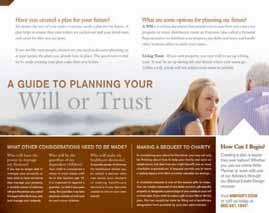





























WILL POWER
LEAVING A LEGACY FOR THE NEXT GENERATION OF MBs

Many of us would say that we wish we had the power to make a difference. Yet together, as a Mennonite Brethren family, we are making a difference. Lives are being changed in Sioux Falls, Salt Lake City, Phoenix, Fresno and yes, even in Hillsboro, Corn, Reedley and elsewhere. Together, we are making a difference.
You also have the power to make a tremendous difference through a significant act of generosity, expressed through your will or trust. At death, many of us have the opportunity to make our largest single gift ever to support Kingdom work. Leaving a gift to USMB would make a significant difference in the lives of future Mennonite Brethren.

You have the power to make a difference… WILL POWER. Would you consider leaving a legacy for the next generation of MBs? Now that’s WILL POWER!
For a free guide to preparing a will or trust, or to learn about other planned giving options, contact a Planned Giving Advisor at 800.551.1547 or email by visiting MBFOUNDATION.COM/STAFF.

YOUTH CONFERENCE SAN ANTONIO, TEXAS
SOUTH MOUNTAIN COMMUNITY CHURCH DRAPER, UTAH
